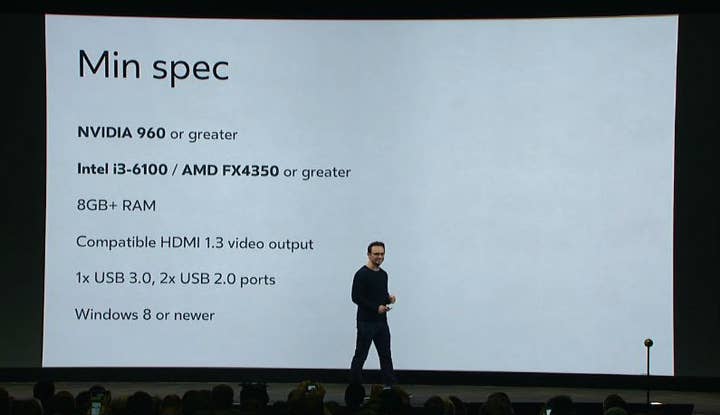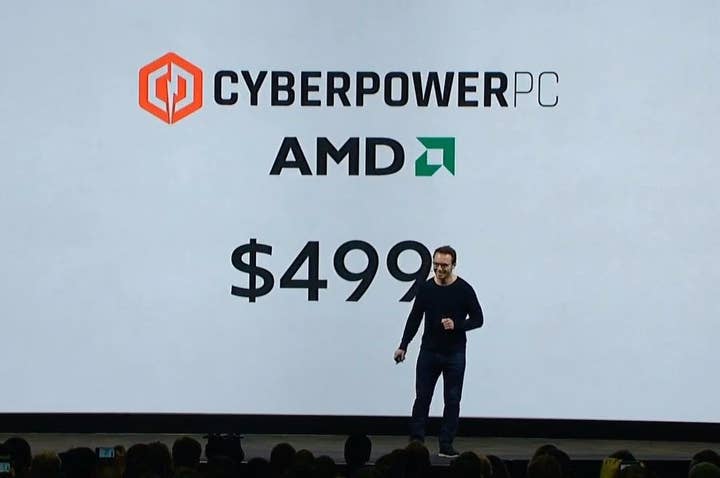Oculus lowers the price of a VR-ready PC by half
Engineering innovation allows $500 PC to support Rift, around half the previous entry level
Oculus offered a glimpse into the far-flung future of VR yesterday with its wireless Santa Cruz prototype, but that overshadowed a far more telling innovation for the technology right now.
A standalone VR headset with "inside-out" positional tracking, Santa Cruz allowed users to briefly explore a virtual environment with no wires dragging on the back of the hardware - an inescapable, immersion breaking flaw in the current iterations of Rift, Vive and PSVR.
An untethered experience has been a clear goal for VR since the very beginning, and while Santa Cruz has elicited a stream of swooning articles, showing it at this stage seems almost like misdirection. Oculus' Michael Abrash closed the company's press conference with a look at what to expect from VR by 2021, where - per UploadVR's summary - he indicated that, "wireless PC-based kits may still be further out."
Which is to say affordable wireless PC kits. One can only guess - and, indeed, one would very much like to know - how much a prototype like Santa Cruz costs to build, but it would surely make the daunting price attached to the current version of high-end consumer VR seem like a bargain by comparison. And Oculus made a clear move towards bringing that price down, announcing new engineering techniques to radically lower the minimum PC specs required to use an Oculus headset.
"Timewarp" and "Spacewarp" - which are part of the Oculus firmware - are two separate systems that contribute to the same goal: making software running at 45 frames per second feel like it's running at 90 frames per second, the threshold for avoiding feelings of nausea. Effectively, they work together to create synthetic frames, improving the performance of all PC hardware, and lowering the requirements at the bottom end.
This could include laptops for the first time, CEO Brendan Iribe said in the Oculus Connect press conference, and it already applies to a PC that costs just $499 - around half the price of most "VR-ready" PCs at present.

Based on the price listed on the Oculus VR website, a Rift and a VR-ready PC could now cost $1100. With the Touch controllers at $200, and a third sensor to allow room-scale experiences at $79, the full Oculus Rift experience can be bought for less than $1400.










